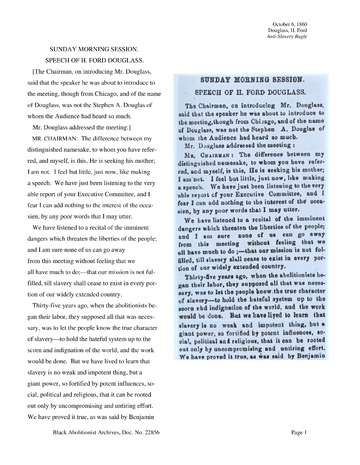
Speaker or author: Douglass, H. Ford
Newspaper or publication: Anti-Slavery Bugle
In this election year, the speaker encouraged continued vigilance in the fight for abolition of slavery. The speaker stressed where each party and each presidential candidate stood on the issue of slavery.
Description of file(s): PDF 12 page, 3,422 word document (text and images)
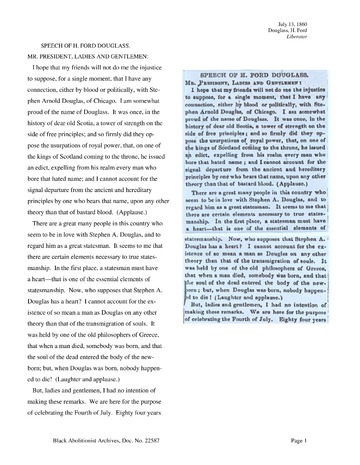
Speaker or author: Douglass, H. Ford
Newspaper or publication: Liberator
Speaking in favor of the Stephen A. Douglas candidacy, the speaker emphasized the pro-slavery position of Abraham Lincoln. He noted that even though the Republican party (to which Lincoln belong) was considered the "anti-slavery party," Lincolns actions showed a different perspective. He noted that Lincoln supported the Fugitive Slave Law and expressed that Lincoln was pro-slavery.
Description of file(s): PDF 23 page, 6,716 word document (text and images)
(page1).jpg.jpg)
Title: Provincial Freeman - April 8, 1857
Speaker or author: Cary, Mary Ann Shadd, 1823-1893
Newspaper or publication: Provincial Freeman (1853 - 1859)
The writer provides an overview of a recent lecture on the subject of slavery.
Description of file(s): one scanned, two columned, newspaper page
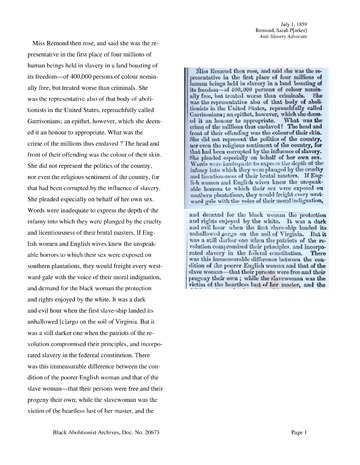
Speaker or author: Remond, Sarah Parker, 1826-1887?
Newspaper or publication: Anti-Slavery Advocate
The speaker stressed the plight of women and children subjected to slavery in the southern states. She spoke before an English audience in London and pleaded for their assistance in the battle for emancipation in the U.S.
Description of file(s): PDF 2 page, 588 word document (text and images)
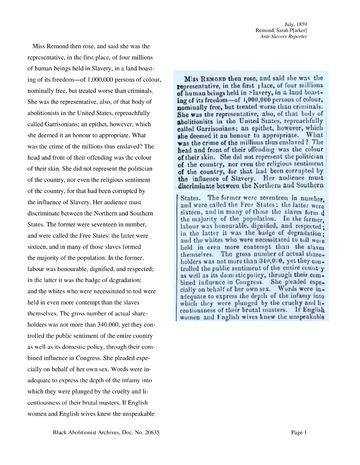
Speaker or author: Remond, Sarah Parker, 1826-1887?
Newspaper or publication: Anti-Slavery Reporter
The speaker stressed the plight of women and children subjected to slavery in the southern states. She spoke before an English audience in London and pleaded for their assistance in the battle for emancipation in the U.S.
Description of file(s): PDF 3 page, 761 word document (text and images)
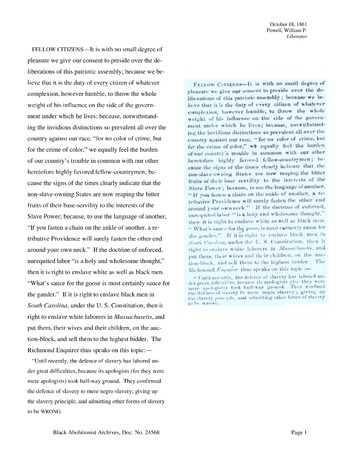
Speaker or author: Powell, William P.
Newspaper or publication: Liberator
The speaker addressed a recent essay noting that slavery had become morally and ethically understood in the U. S. as "Negro slavery." In this sense, only one form of slavery was "right" and any other form of slavery was considered "wrong." The government could then condone enslaving one segment of humanity and denounce and abhor enslaving any other. If slavery was admissible, he argued, then enslaving white people should be admissible as well. He also addressed the current conception that the slaves were content in their condition.
Description of file(s): PDF 6 page, 1,558 word document (text and images)



